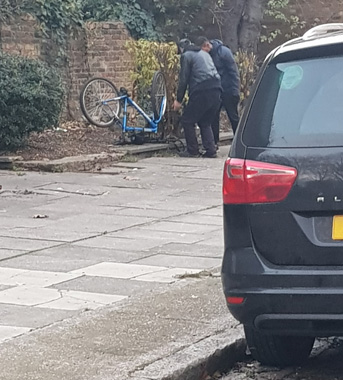Organised crime groups are using sophisticated techniques to aggressively market crack in large cities, as well as towns, and seaside towns. That is according to a summary of findings published by Public Health England (PHE) and the Home Office, from the ‘Increase in crack cocaine use inquiry’, a report on six areas of England.
Rosanna O’Connor, Director for Drugs, Alcohol, Tobacco and Justice at PHE said: “This report will come as no surprise to those working on the frontline, who will have seen first-hand this surge in crack use in their communities.
“Local areas, more than ever, need to continue to invest in effective drug services if we are to stop the creep of this highly addictive drug into the wider community and people’s lives being torn apart. Treatment is cost-effective with every £1 spent yielding a £2.50 saving on the social costs, including reducing crime. Services need to reach out to crack users and offer more attractive and tailored support to meet their specific needs.
“And more needs to be done to improve the links from the criminal justice system into treatment services, for example through greater availability of arrest referral schemes and improved monitoring of drug rehabilitation requirements.”
The report tells of how aggressive marketing of the drug by dealers includes blanket text messages with the latest ‘special offers’. As for supply, dealers increasingly operate around the clock and will take orders and deliver at any time of day.
‘County lines’ drug dealing operations were reported as being a significant issue by people in three of the six areas visited. They thought it was linked to increasing availability and aggressive marketing of crack. Organised crime groups based in cities such as London, Liverpool, Manchester and Birmingham put people in hotels to take on the local market; selling to vulnerable people such as addicts, the unemployed and homeless and sex workers; and violently going after debts.
Crack users to afford their addiction, like other addicts, will carry out acquisitive crimes – burglary and shop theft. In two areas the researchers heard that CCTV and more co-ordinated action by shopping centre security guards had made shoplifting more difficult, leading to other acquisitive crimes such as robberies and burglary.
Treatment workers and service users noted generally fewer police on the streets, and apparent less capacity to target drug dealers or people carrying small amounts of drugs. Also, some police officers reported that their forces no longer had dedicated drugs squads. Hence public dealing; picture by Mark Rowe, East Ham, east London, November 2018 afternoon, bicycle upended on pavement as a signal for drug sales.
The report suggested that crack is becoming more acceptable, even fashionable among groups who would not previously have taken it: including professionals, students and clubbers.
Victoria Atkins, Home Office Minister for Crime, Safeguarding and Vulnerability said: “The government is committed to tackling the illicit drugs trade, protecting the most vulnerable and helping those with drug dependency to recover. The Home Secretary also recently appointed Professor Dame Carol Black to carry out a major review of drug misuse, including the workings of the illicit market.”
For the findings visit https://www.gov.uk/government/publications/crack-cocaine-increase-inquiry-findings.










